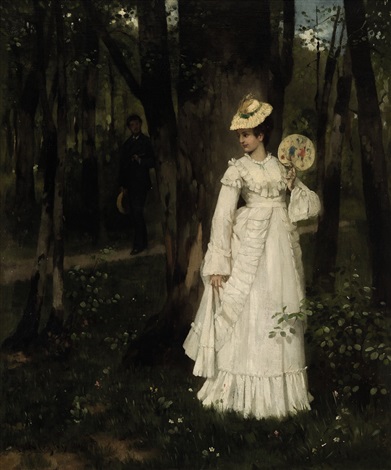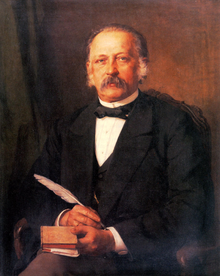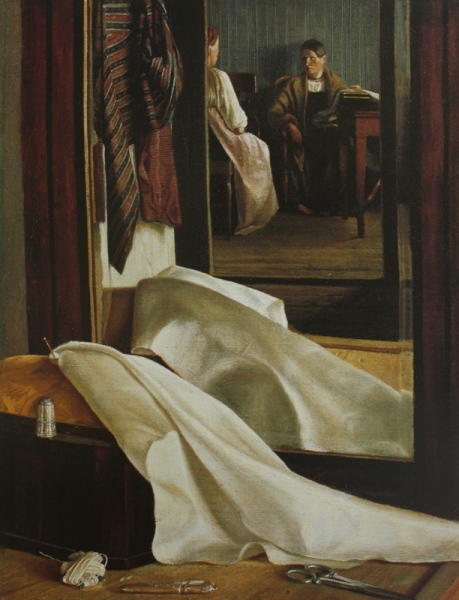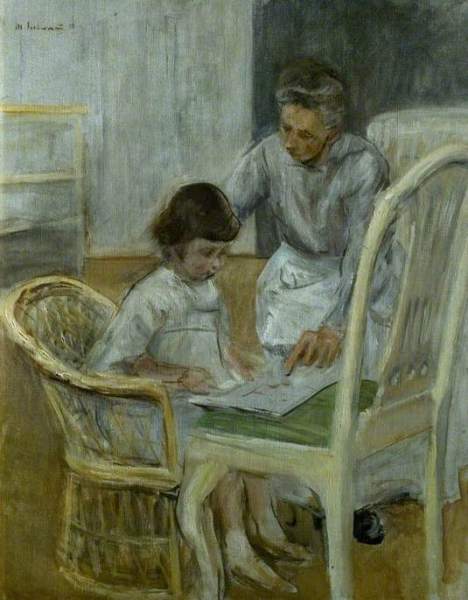In November 2018, Prime Minister Justin Trudeau made a formal apology on behalf of the Canadian nation for turning away a ship full of Jewish refugees, fleeing Nazi persecution in 1939; forced to return to Europe, more than 250 of the 907 passengers later died in the Holocaust. Between 1914 and 1930 the Jewish population of Canada had grown from 100,100 to 155,000, but such was the anti-Semitic sentiment in the run-up to the Second World War, that a country previously open to Jewish immigrants accepted only 5000 refugees between 1933 and 1945. ‘We let anti-Semitism take hold in our communities and become official policy’ said Trudeau.
Earth and High Heaven is set in Montreal, home to the largest Jewish community in Canada until the latter part of the twentieth century, when it ceded first place to Ontario. The novel, published in 1944 – when victory, though not survival, could be assumed – follows the course of a love affair from first meeting in June 1942 to parting three months later. The opening lines suggest that the parting is not forever. ‘One of the questions they were sometimes asked was where and how they had met, for Marc Reiser was a Jew, originally from a small town in Ontario, and from 1933 until he went overseas in September,1942, a junior partner in the law firm of Maresch and Aaronson in Montreal, and Erica Drake was a Gentile, one of the Westmount Drakes.’ ‘They’ assures us that at the time of telling the two are a couple, and that to date they have survived the war; ‘for’ implies, even before we read on, that there was a powerful reason for their not meeting in the first place; ‘originally from’ confirms that Marc is not a refugee but at least second-generation; and the name of the law firm that his employers are also Jewish. Erica, being not only a Gentile, not just a Drake, but ‘one of the Westmount Drakes’ is defined as well out of Marc’s league.

In one sentence, Graham introduces the central characters, sets the scene and gives us an idea of the outcome (the Prologue in Romeo and Juliet comes to mind), while hinting that there will be further questions, beyond the circumstances of the first meeting. With broad brushstrokes she fills in the background: the racial-religious distinctions in Montreal between French, English and Jews, the fortunes of the Reiser family (modest) and those of the Drakes (impressive once, but hit by the depression), Marc’s step up from his social class into the legal profession, Erica’s bold move down from hers into journalism. Far away is the war (lower case ‘w’).
Graham’s prologue covers barely a page and a half before she raises the curtain, steps back, and hands over to her characters, whose dialogues and inner monologues make up by far the greater part of the novel (not surprisingly, the rights were bought by Samuel Goldwyn, and it would have made a wonderful film). They tell their own stories, confide their aspirations and share regrets and difficulties, and silently, but eloquently reflect on their various predicaments, and on each other. The cast is small, essentially two extended families (‘Two households both alike in dignity’), and the scenery changes only minimally to a drawing room, a study, a bar, a hotel room, a newspaper office, until it opens out into the Laurentian mountains. Hanging over everything, though referred to only occasionally, is the cloud of war: the fighting, the deaths, the fate of Jews in Europe, Hitler and the Nazis.
The authorial voice rarely intervenes, and its absence brings us closer to the characters, as we slowly come to know them, assessing and reassessing. Marc’s first impressions of Erica tell us as much about him as they do about her: ‘Her character was in her fine, almost delicate face, in the way she talked and listened to what you had to say … You could tell at a glance that she had a good brain, that she was generous, interested and highly responsive. Her manner was neither arrogant nor self-deprecating; it was as though she had already come to terms with life and had made a good bargain, asking little on her side except that she might be herself.’ Erica recognises ‘something not only preoccupied but remote’ about Marc, ‘as though he had spent half his life learning how to withdraw unto himself and observe the world from a safe distance. He had an unusually fine body and a physical grace which reminded her of her sister Miriam; he was obviously sensitive and very intelligent, and she realized instinctively that his disconcerting remoteness and preoccupation were both a kind of defence.’ Meeting one through the eyes and emotional response of the other hugely enriches our understanding and appreciation of both. It’s love at first sight for them, and for us.
Graham does not list instances of anti-Semitism, so prevalent in Canada in the thirties and forties, but leaves it for Marc gently to enlighten Erica. She is shaken when Marc responds quite matter-of-factly to her suggestion that he look for a room in a new rooming-house, that ‘they don’t take Jews’, chastened when she is reminded of the signs she has ignored over the years ‘in newspaper advertisements, on hotels, beaches, golf-courses, apartment houses, clubs and little restaurants for skiers in the Laurentians …’. To her shame, and fury, she realises that, ‘It made no difference what Marc was like; he could still be told by janitors that they didn’t take Jews, before the door was slammed in his face.’ And many other doors too, including that of her own home.
Her father pointedly ignores Marc on his first visit to Westmount, invited by his son’s brother-in-law, a French-Canadian, admirer of Erica’s: Charles Drake has little more time for French-Canadians than he has for Jews and considers René de Sevigny a cowardly shirker, for failing to enlist. Graham warned her readers from the first that Montreal was riven with racial-religious distinctions. Erica’s father embodies them all. Having decided that René’s ‘shyster lawyer’ friend must, like all the young Jewish lawyers of his acquaintance, be ‘on the make’, out to do himself ‘a bit of good socially’, he is determined that Marc Reiser’s first visit will be his last. ‘I’ve no objection to Jews, some of the ones I know downtown are very decent fellows, but that doesn’t mean I want them in my house any more than they want me in theirs …’

Charles is unapologetic about favouring Erica over his other two children, and she has loved and admired her tall, dark-eyed father, charming and magnetic. She has understood the complexity of his character, and, to date, been forgiving of his more outrageous bursts of intolerance and prejudice. He is closer to her than he is to his wife. He senses straight away the nature and force of Erica’s feelings for Marc, which her mother, a woman for whom the sexual element did not exist ‘except in a derogatory sense’, dismisses as mere infatuation. The ingredients of a successful marriage were in Margaret Drake’s opinion ‘community of tastes, interests and a similarity of viewpoint and background.’ In his (forlorn) attempts to bring an end to the relationship between Erica and Marc, Charles is forced to fall back on his wife’s arguments, which he expresses more fiercely: ‘I don’t want a son-in-law who’ll be an embarrassment to our friends, a son-in-law who can’t be put up at my club and who can’t go with us to places we’ve gone all our lives. I don’t want a son-in-law whom I’ll have to apologise for …’ He is concerned for himself, and for Erica, worried that she might have to ‘go through life neither flesh, fowl nor good red herring, living in a kind of no man’s land where half the people you know will never accept him and half the people he knows will never accept you.’
Charles’ case against their marriage will find an echo five hundred miles away in Manchester, Ontario, where Leopold Reiser warns his son, ‘You’ll be neither one thing nor the other, and that goes for your wife and children too, particularly your children … It’s like mixing oil and water.’ Both men fear for their grandchildren, Charles that they will be brought up Jewish, Leopold that they won’t.

Erica has already heard these arguments, from Marc: ‘I’d probably go on being the only Jew in the room so far as your family and most of your family’s friends are concerned, which isn’t awfully pleasant for either them or me.’ Marc, who at first meeting had admired Erica’s self-belief, struggles to find the same quality in himself: ‘Erica was born on top. She’s been on top all her life … she can go anywhere and do anything on the basis of complete equality with anyone … If she marries me she’ll lose all that overnight.’
But Graham has convinced us that her heroine has strength enough for both of them. Born in 1914, ‘she had come to full consciousness when political security had begun to go and economic security had already gone. … The more you could learn to do without the safer you were.’ She is twenty-eight and over the years has turned down suitors, exchanged the security of a parental allowance and social position to earn her own living on a newspaper (in this essentially serious novel there are incidentally some wonderful scenes of office life), she has defied her father, and she has joined the Army.

The year 1942 was a low point in the War, not least for the Canadians: 1000 Canadian soldiers lost their lives in the Dieppe raid on 19 August, 2500 were killed and 2000 taken prisoner. Attitudes towards Jews were unexpectedly hardening in Canada. But Erica is brave, a risk-taker capable of embracing change. We have to hope that Charles Drake is wrong to think that married to a Jewish lawyer life would be no easier for his daughter in 1945 than in 1910.
I’m ashamed to say that I didn’t know anti-Semitism was once so widespread and so deep-rooted in Canada – and it’s only fair to add that the policy was greatly liberalised after the war. Earth and High Heaven is an eye-opener, a wonderful novel with one of the best of Persephone heroines.



